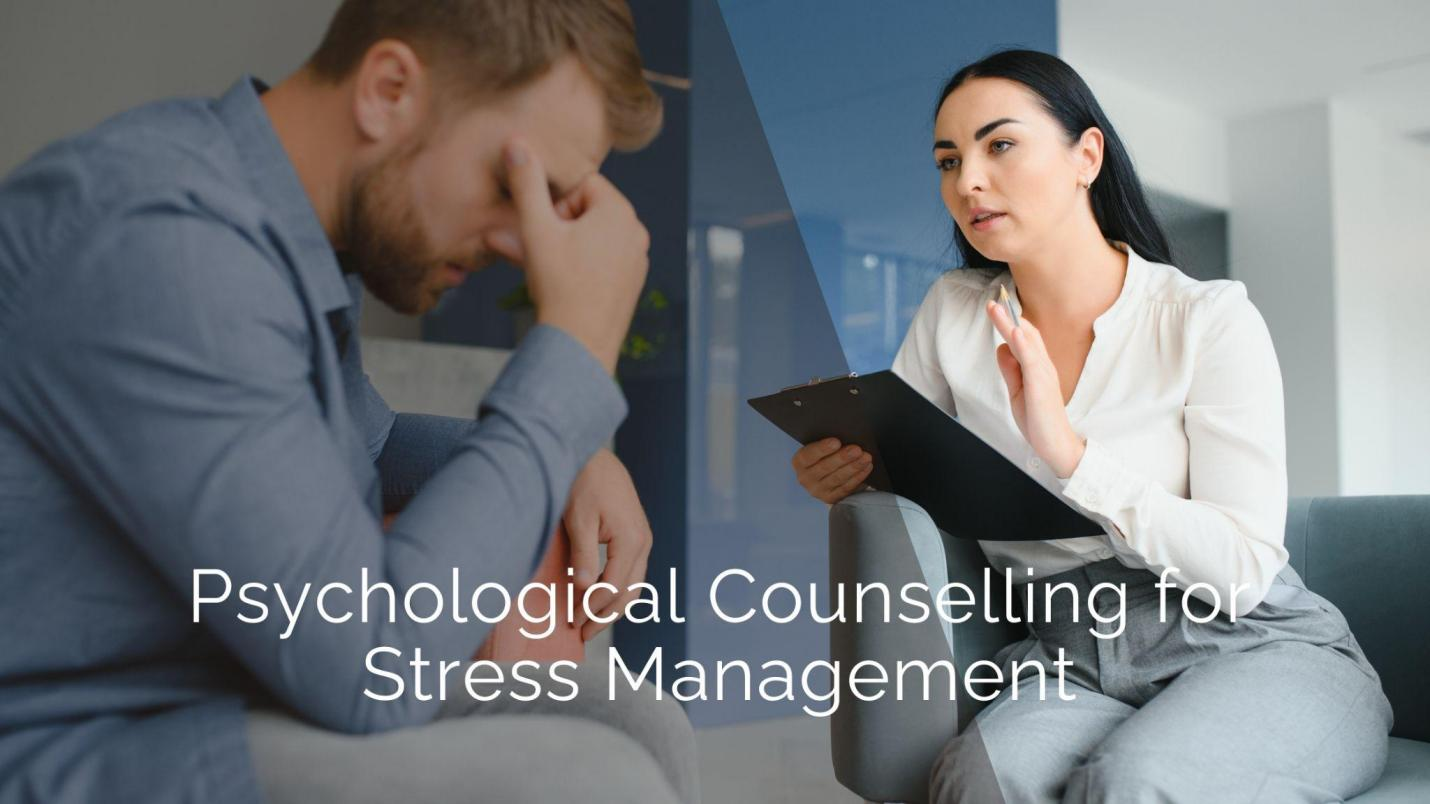
Stress Management Counselling: Effective Psychological Strategies to Overcome Stress
November 07, 2025
Stress is dubbed the so-called silent epidemic of the century. It enters our life like an invisible stranger-sometimes insidious, sometimes overwhelming-clinging to our thoughts and bodies. It could be a work deadline, family obligation, or financial issues, or it could be the incessant buzzing of our phones, but we are now almost always accompanied by stress. However, when the stress seems to be unavoidable, the manner in which we react to it can turn the whole situation around. This is where psychological stress management counselling comes in, not as a fast way out, but rather as a guide that will help us find our balance once again.
Stress: It is a Two-Sided Sword.
Stress is not a bad thing. In fact, even weak bouts of stress can be inspirational, as can the urge that causes an athlete to run faster or a student to finish a task on time.
This is what psychologists refer to as eustress, which is the positive aspect of stress that helps to drive action.
However, at a certain point when stress exceeds its welcome, it turns into distress. Think how heavy it might be to put on a backpack with stones--you can hold it for a few minutes, but without ever setting it down, it will soon weigh you down. Stress experienced over a period of time is the same; it is a heavy burden to the body and the mind.
Some common signs include:
● Irritability or mood swings.
● Migraines, depression, or muscle aches.
● Difficulty concentrating.
● Sleep disturbances.
● Feeling that you are always on edge.
Anxiety, depression, elevated blood pressure, and even heart disease may be caused by unmanaged stress over time. This is why it is not only important, but also necessary to learn how to cope with it and maintain both mental and physical health.
The extent to which Psychological Counselling is beneficial
Social media scrolling, binge-watching, or comfort food are some of the fast solutions that many people attempt to use to overcome stress. As much as they might offer some temporary relief, they do not solve the problem. Counselling is more though.
With the aid of a trained psychologist, clients:
Know what triggers your stress: What emotions make you feel stressed? Is it perfectionism, no boundaries, unresolved past experiences or something more?
Develop coping skills: Relaxation skills, healthier thought patterns, and problem-solving strategies.
Restructure mindsets: Sometimes it does not happen, but the interpretation that we make makes us feel upset.
Become resilient: This is the capacity to recover after failures without obsessing over them.
Stress can be reduced in counseling with the correct set of instructions and toolkit to manage, it is easy enough to control.
Methods of Stress Management Counselling.
1. CBT: Rewiring the Mind
CBT is one of the most useful treatments for stress. It has its foundation in the fact that our thoughts determine our feelings, which in turn determine our behaviour. For example:
Mental state: I will never be able to complete this project on time.
Feeling: Anxiety, panic.
Behaviour: Procrastination.
Some of these thoughts should be reframed into healthier ones with the help of a counsellor:
I will be able to divide this project into smaller steps and address each step at a time.
It can be compared to having shattered glass and then having a fresh pair of glasses that are clear, you begin to see things differently, and this will relieve the stress.
2. Meditation and Resting
Mindfulness is the practice of being present without judgment. Clients are taught routines such as those in counselling.
● Deep breathing exercises.
● Natural muscle relaxation.
● Guided meditation.
Suppose your mind is in a snow globe. It is shaken violently by the stress, and the snow swirls chaotically. Mindfulness assists in bringing the world to a standstill, allowing the snow to gradually fall until we regain clarity.
3. Time Management, Boundary Setting
One of the greatest reasons why people are stressed today is not being able to say no. Various people balance work, family, and personal issues until they become victims of burnout. Some of the skills taught in counselling include:
Prioritizing tasks.
Delegating responsibilities.
Setting up proper boundaries (e.g., closing work emails at night).
Boundaries act as protection to the mind-they protect your energy and also act as a shield to emotional drainages.
4. Problem-Solving Therapy
Sometimes stress may just be due to things that are not necessarily to do with emotions like money, career change or relationship issues. Problem-solving skills help counsellors to break down problems into small steps that can be easily resolved and turn mountains into little mountains that can be conquered.
5. Lifestyle Guidance
The practice of psychological counselling will frequently refer to lifestyle habits that influence stress:
Sleep hygiene.
Nutrition and exercise.
Quitting dependence on alcohol, caffeine or any other substances.
Imagine those habits as the pillars of a house - they are very fragile, and when the storms (stressors) come, the entire house shakes.
To get a clearer picture of stress counselling, consider:
A ball of knots: Stress tangles your brain and makes it feel like a ball of knots and strands. It is untangled, thread by thread, through counselling.
Real-Life Example
Consider the case of XX, a 32-year-old professional who is stressed out by her deadlines and family demands. Her stress was in the form of migraines and insomnia. She was taught by counselling how to recognise her perfectionistic thinking, how to engage in relaxation before sleep, and how to voice her workload limitations at the office. In several months, she had fewer headaches, was able to sleep better, and felt more in charge of her life.
The case of XX shows that stress does not disappear in one day, but counselling provides the means through which people can deal with it well.
Stress management counselling is beneficial in the long run in the following ways.
Better Emotional Control: You learn to avoid responding without thinking, but to respond rationally, mindfully.
Improved Relations: Fewer stresses will occur, and the relationships will be meaningful.
More Work-Life Balance: Boundaries are the difference between a successful career/relationship and an unhealthy one.
Resilience: When you have developed coping skills, they stay with you forever.
It is the process of boosting your immune system, but not against the viruses, but against the unavoidable stresses of life.
When do I need to stress counselling or management?
- Not every stress is to be treated. But if you notice:
- Stress disrupts day-to-day living.
- Physical (chronic headaches, fatigue).
- Constant anxiety, depression, or anger.
- Dependency on poor coping skills.
It is time to consult a professional. It’s not embarrassing to seek support; on the contrary, it is an indicator of power and self-confidence.
Conclusions: Stress to Strength.
There will always be some stress in life, just as waves in the ocean. On other days, there are mere ripples; on other days, there are lofty tides. Psychological counselling is simply there to teach us how to ride on such waves rather than be lost in them.
As our coping skills are acquired, our negative self-talk is restructured, and more helpful behaviors are learned, stress can become our teacher, and this reminds us of our weakness and drives us to homeostasis, and even motivates us to improve.
Then, in the future, as stress is knocking on the door, do not think of it as an adversary.
Take it as a call to stop, think, and find the help you want. It is through counselling that you will be able to steer your way out of the storm and, once more, discover calm seas.
You Might Like Also

Uncovering the Overlooked Signs of ADHD in Men and Women
Pawan
|
November 06, 2025

7 Benefits of Psychological Counselling You Should Know
Pawan
|
February 18, 2025

Power Bank
Pawan
|
March 27, 2024













